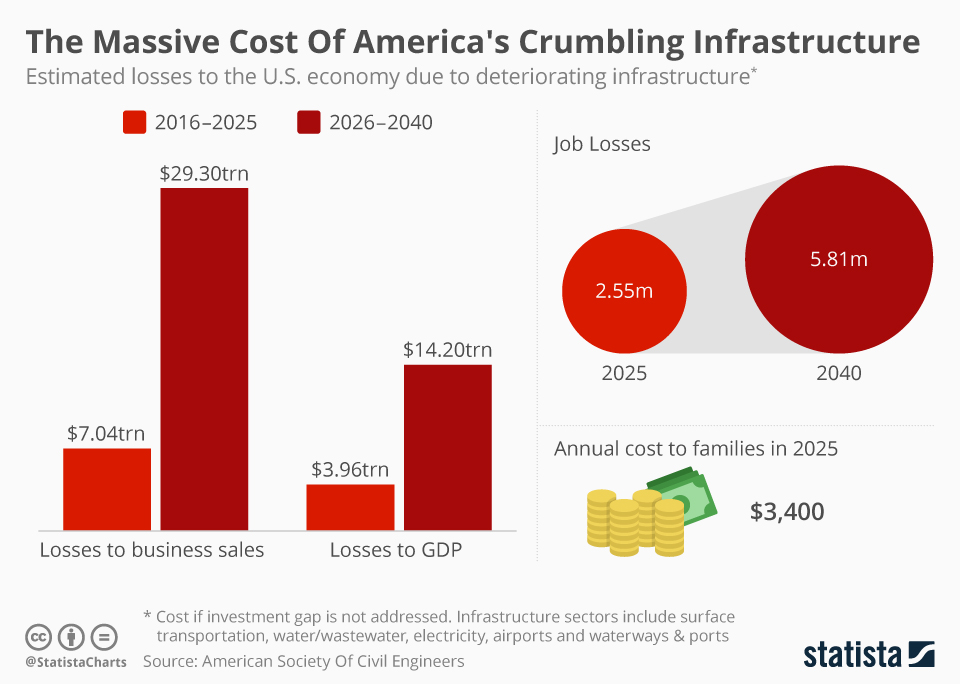The Grades Are In: ASCE's 2017 Infrastructure Report Card
![]() Print this Article | Send to Colleague
Print this Article | Send to Colleague
Every four years, the American Society of Civil Engineers (ASCE) release the Infrastructure Report Card. In 2017, America gets a D .
Report via infrastructurereportcard.org:
"Our nation is at a crossroads. Deteriorating infrastructure is impeding our ability to compete in the thriving global economy, and improvements are necessary to ensure our country is built for the future. While we have made some progress, reversing the trajectory after decades of underinvestment in our infrastructure requires transformative action from Congress, states, infrastructure owners, and the American people.
That’s why, every four years, America’s civil engineers provide a comprehensive assessment of the nation’s 16 major infrastructure categories in ASCE’s Infrastructure Report Card. Using a simple A to F school report card format, the Report Card examines current infrastructure conditions and needs, assigning grades and making recommendations to raise them."

Source: https://www.statista.com/chart/8493/the-massive-cost-of-americas-crumbling-infrastructure/
South Carolina Infrastructure Overview:
"While the nation’s infrastructure earned a "D " in the 2017 Infrastructure Report Card, South Carolina faces infrastructure challenges of its own. For example, driving on roads in need of repair in South Carolina costs each driver $502 per year, and 10.3% of bridges are rated structurally deficient. Drinking water needs in South Carolina are an estimated $1.8 billion. 178 dams are considered to be high-hazard potential. The state’s schools have an estimated capital expenditure gap of $90 million. This deteriorating infrastructure impedes South Carolina’s ability to compete in an increasingly global marketplace. Success in a 21st century economy requires serious, sustained leadership on infrastructure investment at all levels of government. Delaying these investments only escalates the cost and risks of an aging infrastructure system, an option that the country, South Carolina, and families can no longer afford."
